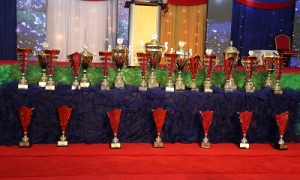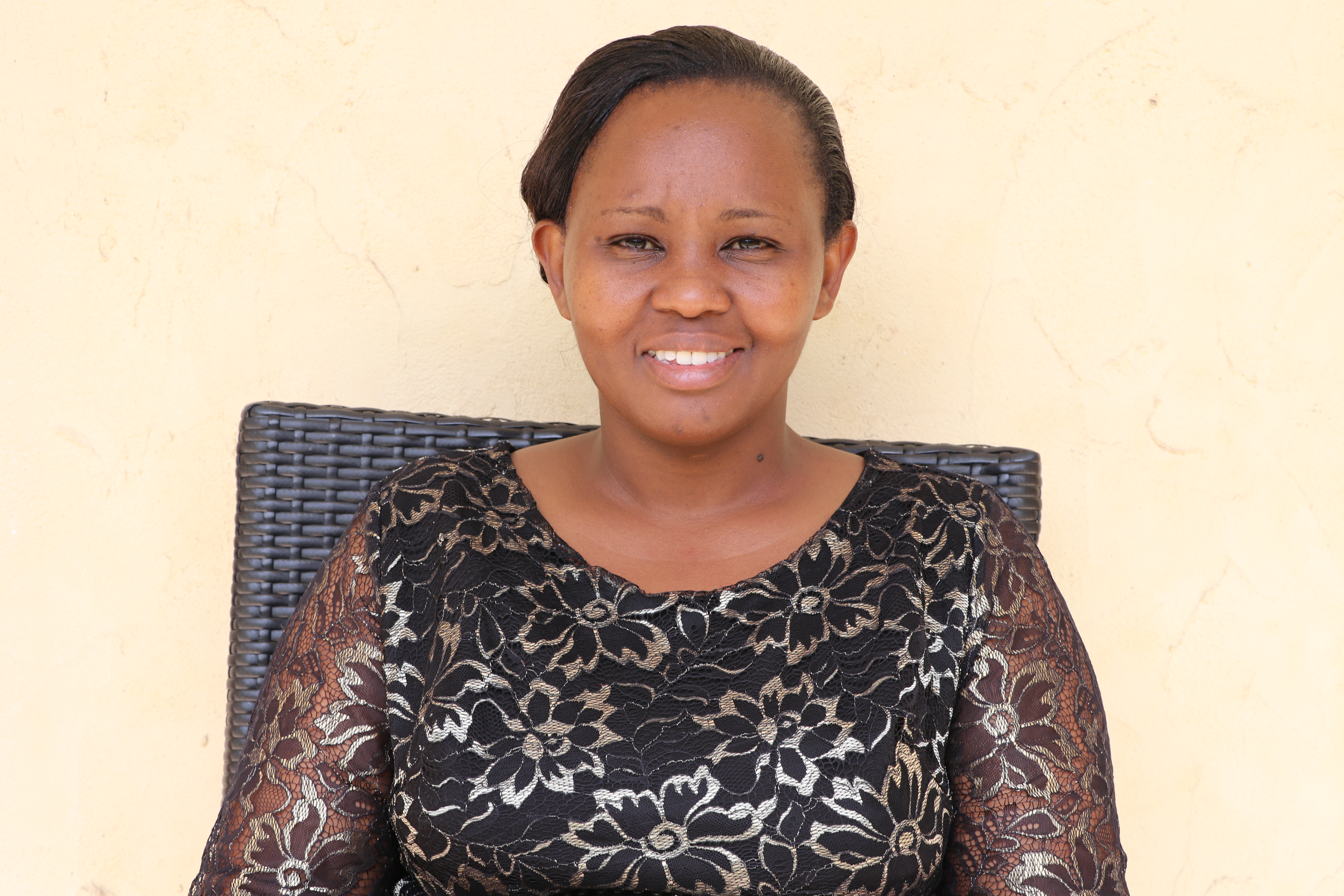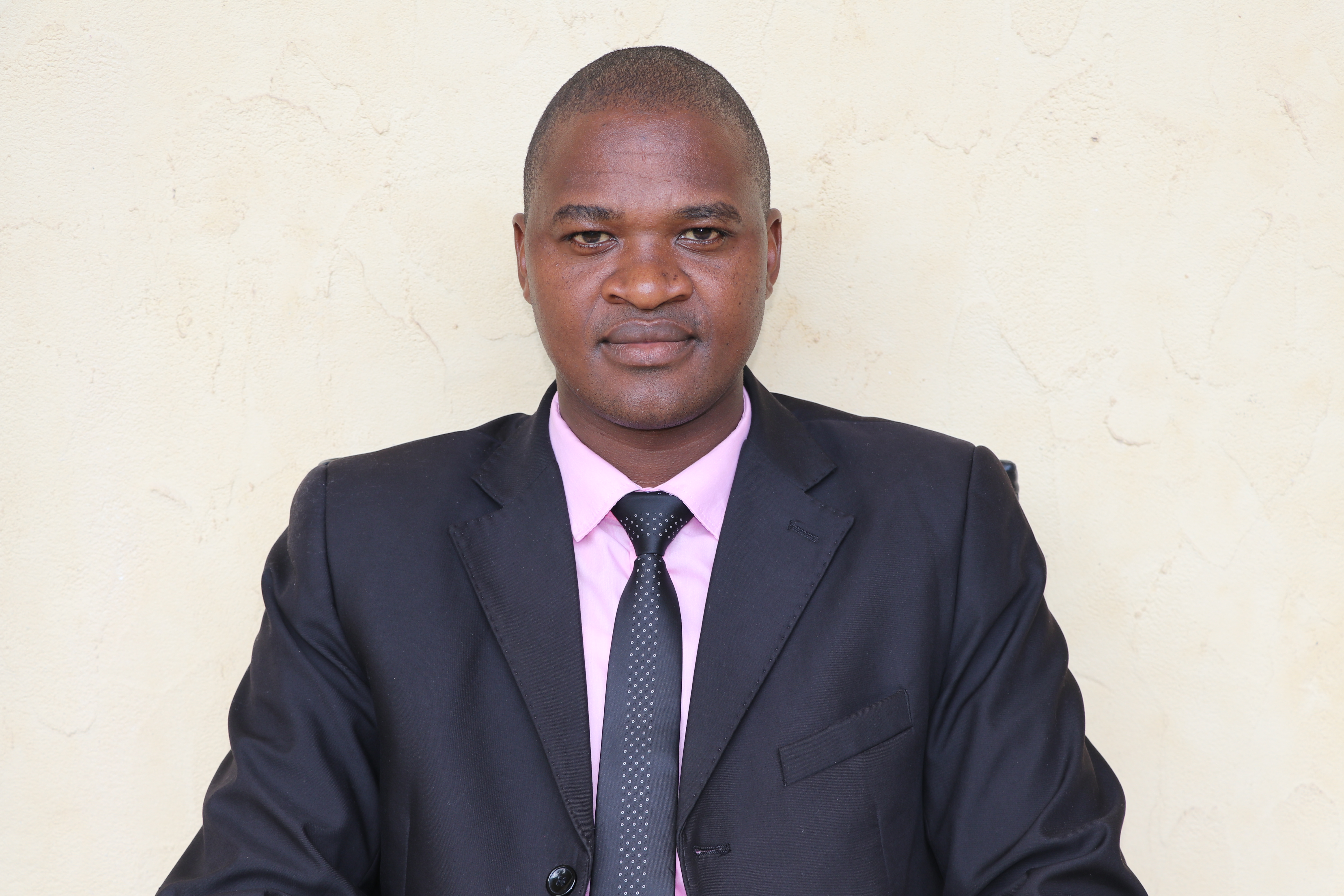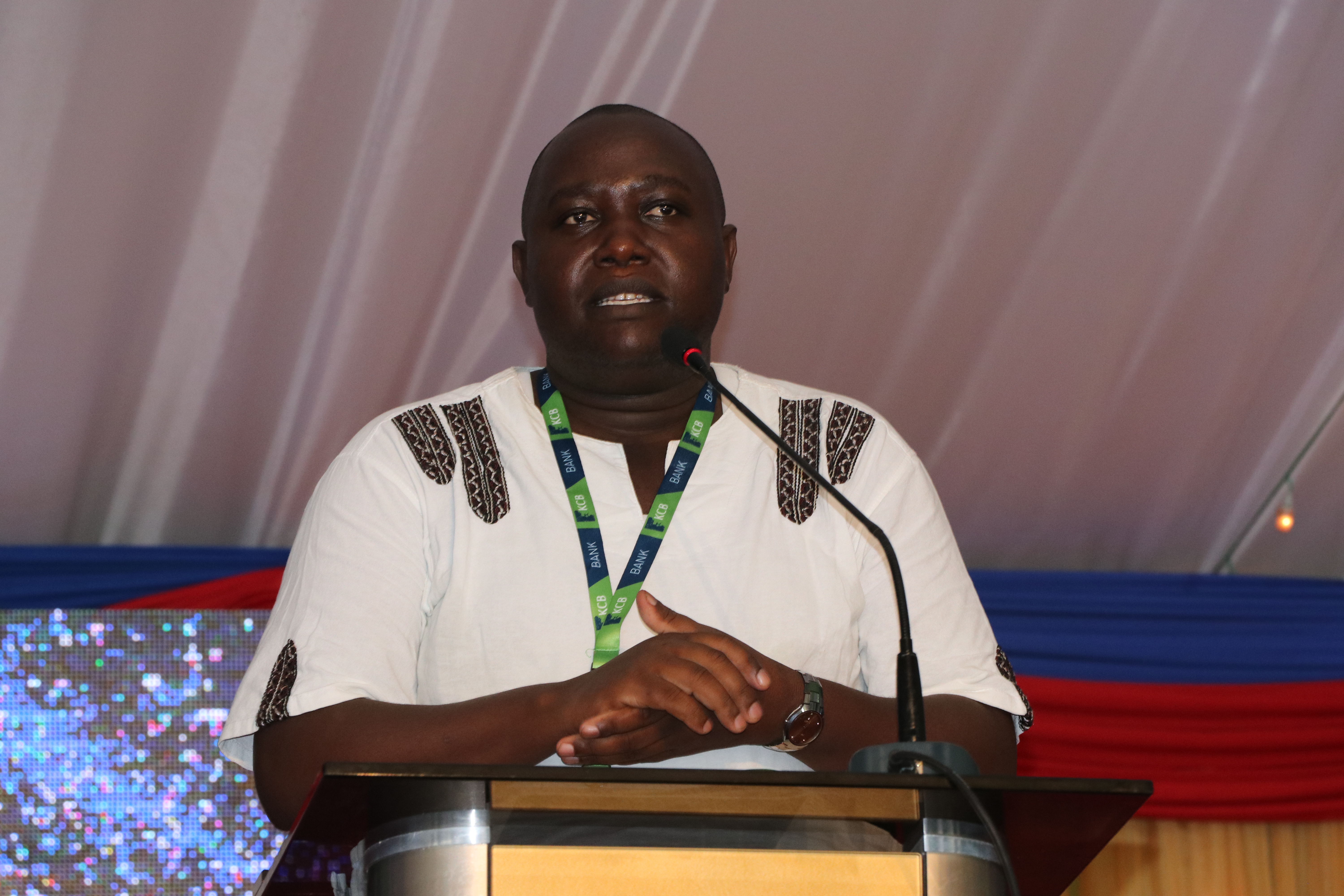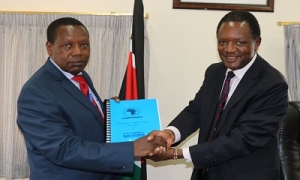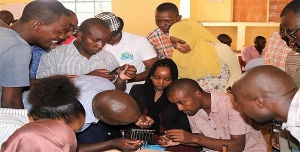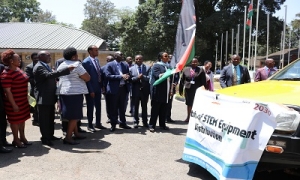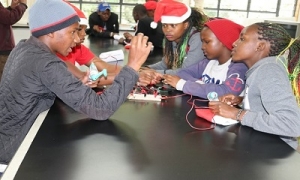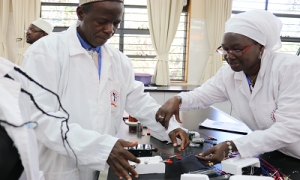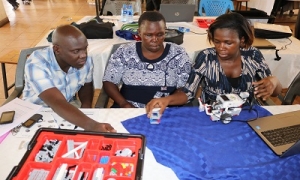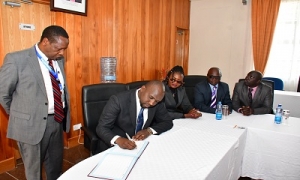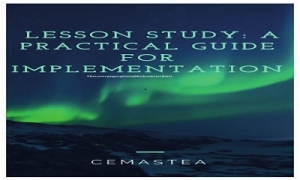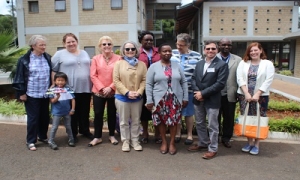Written by: Waibochi Paul
Photos by: Esther Nyambura
The award was an initiative of TSC, CEMASTEA, e-Kitabu and KESSHA and the aim of the iTOYA competition was to enhance teacher professional development, technological pedagogical content knowledge and award the best teachers in the country who develop and implement the best innovative ICT integrated lesson. It was the 3rd award competition the inaugural having been held in 2017.
The main objectives of the Competition were to:
- Develop ICT teacher capacity at secondary schools by enhancing their ICT integration in teaching and learning skills in tandem with digital literacy
- Encourage Teachers to integrate ICT in the teaching and learning which will ultimately enhance the quality of teaching and learning and education in general and aid in the realization of vision 2030;
- Give teachers opportunities to reflect on how best to use technology to further education, and to express ideas in their own voices;
- Develop and document best innovative classroom practices.
The three top iTOYA 2019 winners were;
- Catherine Wanjiku Mune -Keruguya Girls-Kirinyaga Central Region
- Amos Ogagah- Moi Vokoli Girls Vihiga -Western Region
- Samuel Mwangi, Moi Forces Academy- Nairobi Region
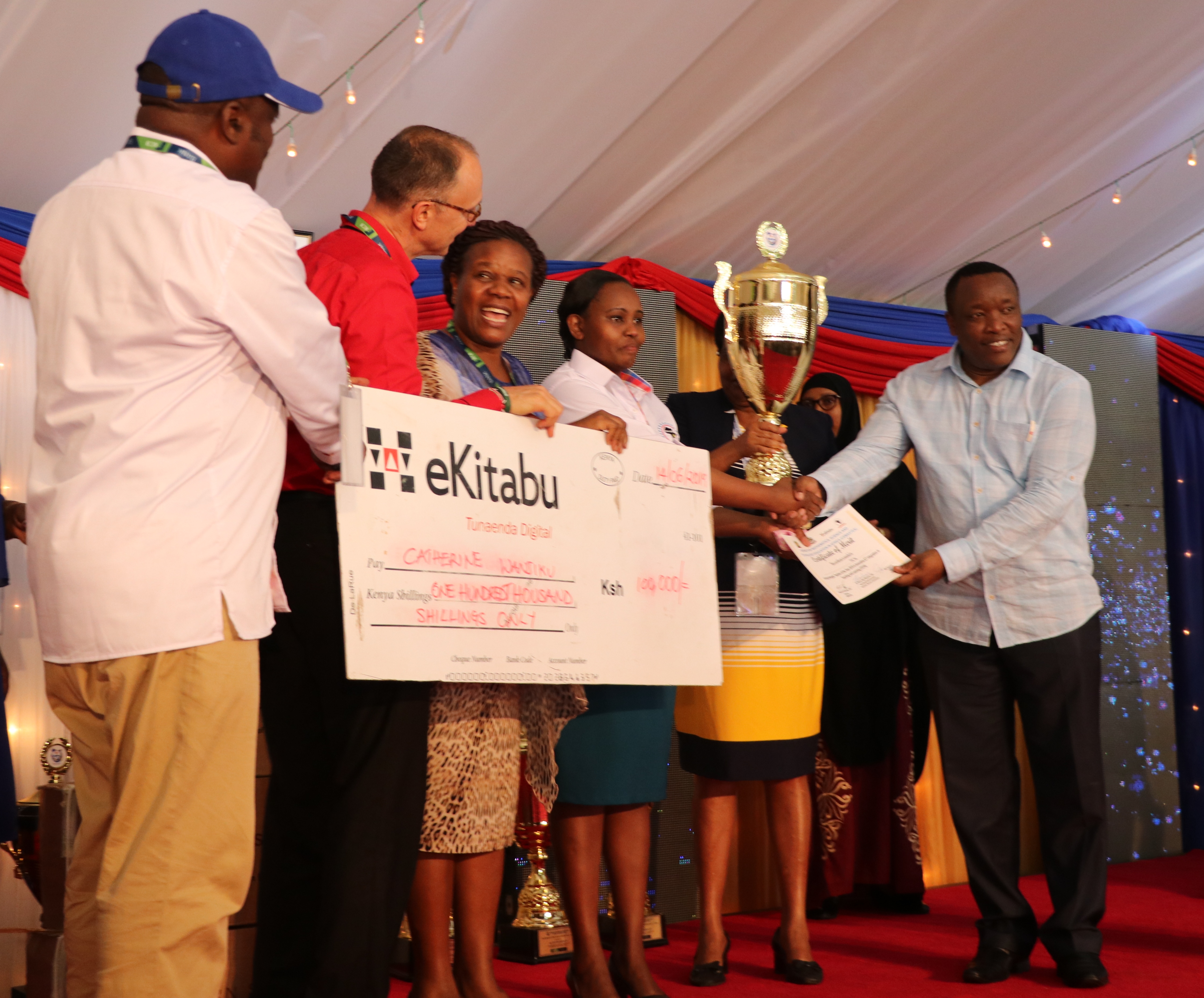
The overall winner iTOYA 2019 Ms Catherine Wanjiku Mune of Kerugoya Girls Central region receiving a trophy, cheque
and certificate from Mr. Alfred K. Cheruiyot Principal Secretary for post training and skills development, MOE.
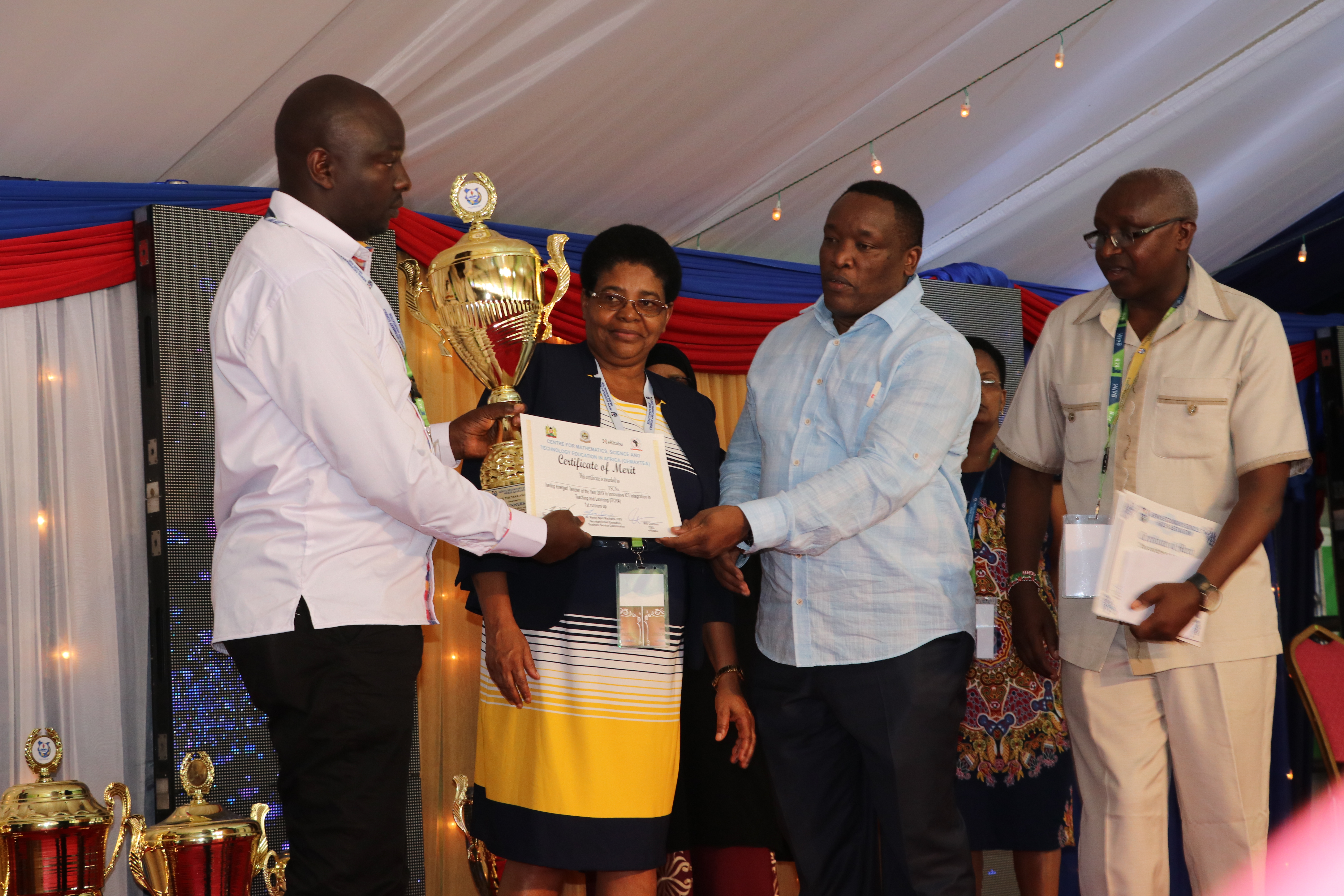
The Ist runners up iTOYA 2019 Mr Amos Ogagah of Estern region receiving his prizes from
Mr. Alfred K. Cheruiyot Principal Secretary for Post Training and Skills Development, MOE.
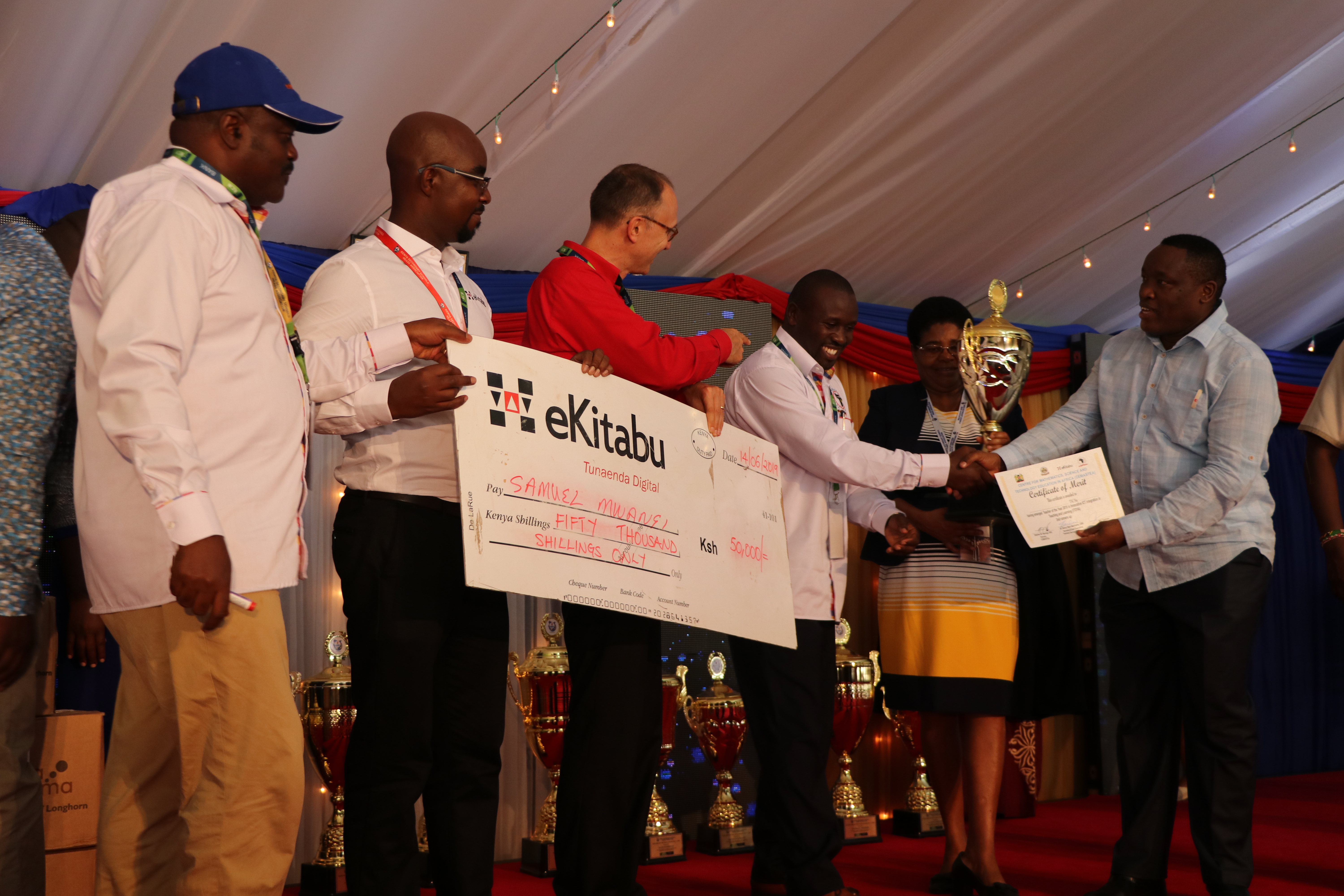
The 2nd iTOYA Runners up Mr. Samuel Mwangi receiving his prizes from
Mr. Alfred K. Cheruiyot Principal Secretary for Post Training and Skills Development, MOE.
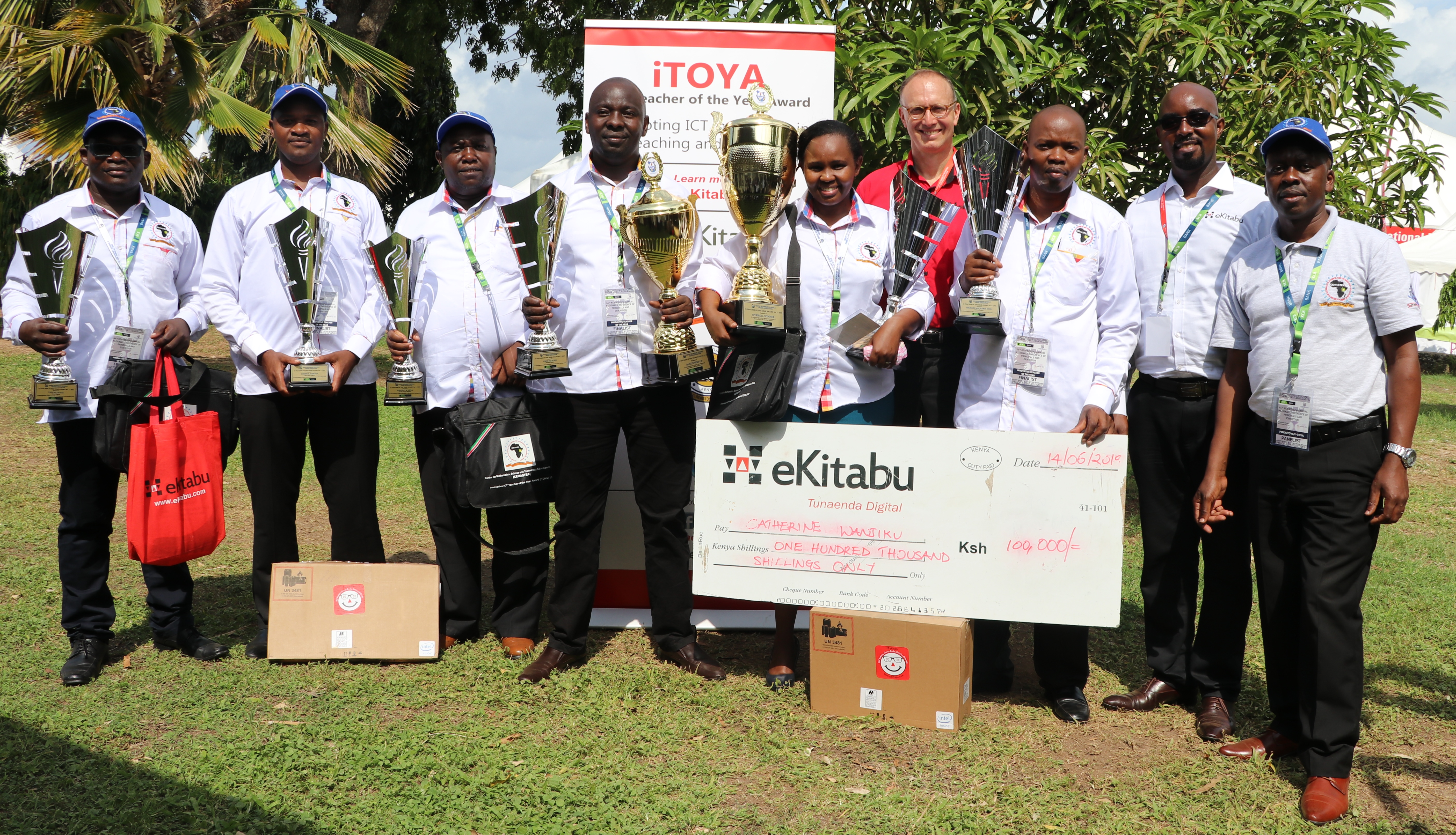
The iTOYA 2019 finalist with CEMASTEA and eKitabu
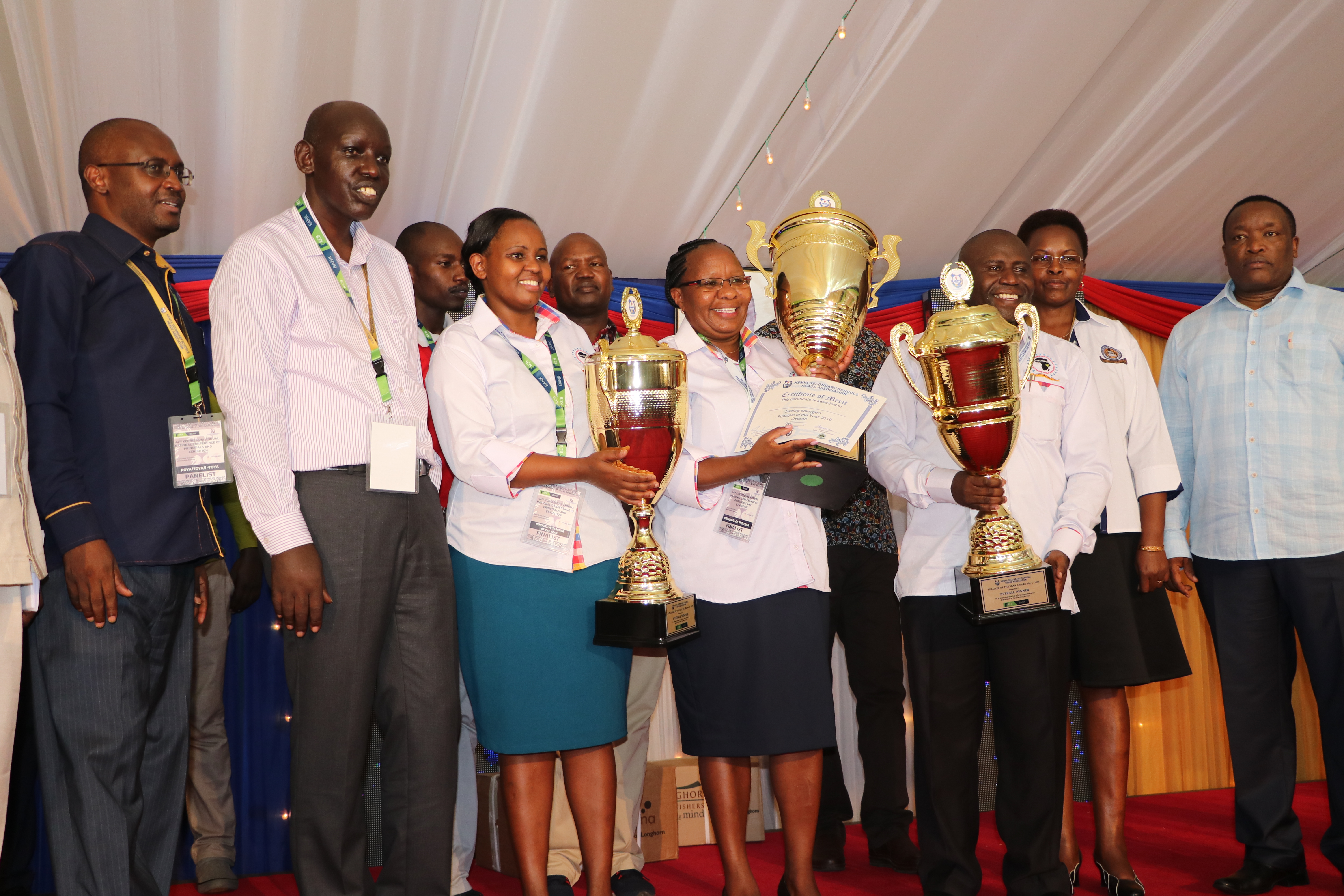
The three overall winners flanked by Dr. Belio Kipsang, PS State Department of Early Learning and Basic Education, MOE
and Mr. Alfred K. Cheruiyot Principal Secretary for Post Training and Skills Development, MOE.
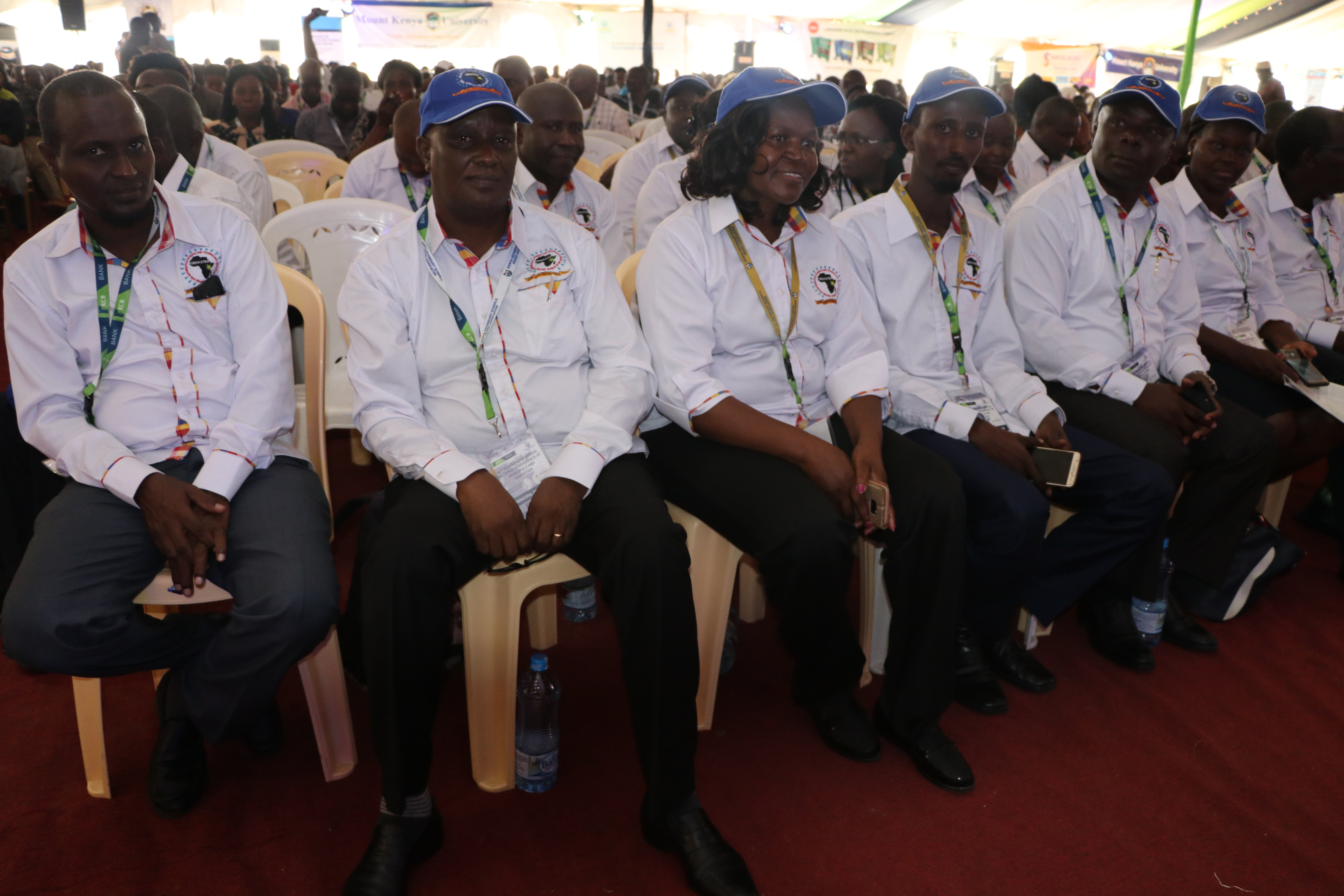
The POYA, TOYA and iTOYA finalist branding CEMASTEA
iTOYA 2019 NOMINEE’S SUMMARY
A total of seven regions presented candidates for the 2019 i-TOYA awards during the 44th KESSHA conference.
|
|
Catherine W. Mune TSC 557674 School- Kerugoya Girls High, Kirinyaga Region- Central Subject taught-Kiswahili/CRE Academic/Professional qualification: Masters of Educations |
|
|
Amos Ogagah TSC 523331 School- Moi Girls Vokoli, Vihiga Region- Western Subject taught- Bio/Chem/Computer Academic/Professional qualification- Bachelors in Education |
|
|
Samuel Kigumi Mwangi TSC 497874 School- Moi Forces Academy Nairobi Region- Nairobi Subject taught- Computer/PE Academic/Professional qualification: Bachelors of Education |
|
|
Songok K. Joseph TSC No 576306 School-St. Josephs Girls, Nandi Region- Rift Valley Subject taught- Physics/Maths Academic/Professional qualification: Bachelor of Education |
|
|
Josephat Mula Kavuwa TSC 649163 School-Fafi Girls, Garissa Region- North Eastern Subject taught- Business/Geog/Computer Academic/Professional qualification: Bachelor of Education |
|
|
Pascal Onani TSC 513371 School-Gadeni, Tana River Region- Coast Subject taught- Geography/Chemistry Academic/Professional qualification: Masters of Education |
|
|
Michael Macharia TSC 559275 School-Chuka Boys, Tharaka Nithi Region: Eastern Subject taught-Biology /Chemistry Academic/Professional qualification: Masters of Education |
Mr. Wahome Ngari (right), Chief Executive Officer-Citadel Consulting Limited handing over Interview report and recommendations to Mr. Stephen Njoroge-HSC (left), Director, Centre for Mathematics, Science and Technology Education in Africa (CEMASTEA) after a vigorous and competitive interview process to get the best for the previously advertised vacancies.
Interview report and recommendations presented by Citadel Consulting Limited to the Centre for Mathematics, Science and Technology Education in Africa (CEMASTEA)
The Centre for Mathematics, Science and Technology Education in Africa (CEMASTEA) is mandated to enhance the capacity of mathematics and science teachers for effective curriculum delivery. Mathematics and science are the building blocks of technology and therefore CEMASTEA’s role is critical in helping the country to achieve Vision 2030 and the Big Four Agenda.
The training involves the use of two tier cascade system to effectively undertake INSET where Trainers of Trainers (ToT’s) are trained at the National Level and in turn train teachers in the counties. This year’s County INSET kicked off in20 counties country wide for a week.
The training is geared towards helping the teachers become better and more effective in teaching the learners. A lot of emphasis is on learner-centred activities that eventually help by opening up learners thinking
The theme of the training is ‘Effective Use of Learner Centered Strategies in Teaching and Learning’. The Learning outcomes of the training are:
By the end of the training, the teachers are expected to demonstrate:
- Understanding of the 21st Century skills and Competency Based Curriculum
- The right knowledge, skills, and attitudes in designing innovative learner-centred activities including Project based learning and ICT integration
- Ability to reduce HIV and AIDS stigma and discrimination.
In 2019, 1,100 County trainers were trained by CEMASTEA National trainers. The County trainers are expected to train 11,709 Mathematics and science teachers drawn from 47 counties during the April and August 2019 school holidays.
CEMASTEA is using a total of 46 training centers. A total of 6,219 teachers of mathematics and science are undergoing training in April 2019.
REPORTS FROM VARIOUS COUNTIES
MARSABIT COUNTY
The training was opened on 22rd April 2019 by the Marsabit County Director of Education, Mr Paul Mwongera.

Marsabit County Director of Education, Mr. Paul Mwongera
Mr Mwongera appreciated that the teachers undergoing training in the County were energetic and full of potential. He echoed the importance of STEM subjects, linking them as key to the achievement of the SDGs Vision 2030 and the Big Four Agenda.
He appreciated CEMASTEA for taking the lead in assuring that secondary mathematics and science teacher were being capacity build in STEM.
The teachers were challenged to be innovative and encourage their students to value STEM subjects.


From left: Mr Ogwel Atieng’ CEMASTEA National trainer making his remarks during the opening ceremony and Participants during the training
BUNGOMA COUNTY
While speaking as the chief guest at Friends School Kamusinga Mr. Aden Ibrahim TSC- CD Bungoma County challenged the teachers that the training offered them an opportunity to learn new pedagogy, relearn new skills in teaching and learning and would remind them what they learnt in institutions of higher learning. He reiterated that, since the training targeted teachers whose teaching experience ranged from 0-5 years this would see them act as agents of change in schools by implementing and cascading what they learnt from the sessions.

Mr. Aden Ibrahim TSC- CD speaking during the opening ceremony of the County INSET at Friends School Kamusinga – Bungoma County
He stated that it was essential for teachers to undertake training not only as a requirement from TSC but also as a way to enhance their skills which would improve leaners’ ability to understand STEM subjects. Mr. Ibrahim urged the participants to focus on leaner centred strategies in teaching the 21st Century leaner.
Mr. John Livingstone Makanda- Secondary Programme Coordinator representing the Director CEMASTEA urged the participants to practice the skills they would acquire as it was in line with the new Competency Based Curriculum (CBC). Mr. Makanda advised them to develop innovative teaching and learning methods which would engage the 21st Century learner.

Mr. John Livingstone Makanda- Secondary Programme Coordinator giving his opening remarks during the training.

Participants following the proceedings

Mr. Jasper Sifuna, Trainer Physics facilitating the session on 21st Century skills
MURANGA COUNTY
Teachers from Murang’a County attending the April, 2019 INSET training, were encouraged to be game changers in their schools.

A section of the participants during the opening ceremony
Mr. Peter Kavuria - Sub County Director of Education, Kahuro representing the chief guest during the opening ceremony of the April 2019 INSET remarked that the training is geared towards helping the teachers become better and more effective in teaching the learners. He emphasized the need to put a lot of emphasis is on learner-centred activities which eventually help by opening up learners thinking. The teachers were also advised to have the right attitude, be competent as they embraced Competency Based Curriculum (CBC), Integration of Information, Communication and Technology (ICT) in teaching and learning and also applying learner centredness in teaching and learning was emphasised.

Mr. Kavuti - Sub County Director of Education, Kahuro representing the County Director of Education during the opening ceremony

Mrs. Njihia – Principal Kahuhia Girls’ talking to the participants making her remarks during the opening ceremony

Mr. Waibochi National Trainer CEMASTEA giving his remarks during the training

Mr. Jalang’o Odhiambo County Trainers during the opening ceremony of the training






Participants engage in an activity on the ASEI-PDSI approach aimed at continuously rallying and focusing teachers on certain elements that are useful in making classroom practices more learner-centred
In 2016, the Centre for Mathematics, Science and Technology Education in Africa (CEMASTEA) which is mandated to provide Teacher Professional Development for Mathematics and Science teachers was charged by the Ministry of Education (MoE) with the responsibility of rolling out the STEM Model Schools intervention programme to enhance learners' capability in STEM. The aim of the programme is to cultivate attraction to STEM courses right from lower levels of education.
The 3rd Batch of STEM Equipment Distribution targeting the 102 STEM Model Schools took place in CEMASTEA on 4 February 2019.
The theme was to enhance innovativeness and employability among Kenyan youth by strengthening the teaching and learning of STEM through provision of high value equipment.
This brought together officials from the Ministry of Education (MoE), TSC, KESSHA and various partners and stakeholders in the education sector.
AMB. (Dr.) Amina Mohammed, EGH, CAV Cabinet Secretary Ministry of Education who was the chief guest flagging off the 3rd Batch of STEM Equipment at CEMASTEA.
AMB.(Dr.) Amina Mohammed, EGH,CAV Cabinet Secretary Ministry of Education thanked CEMASTEA and other partners involved in the exercise of promoting STEM Education in the country. Speaking during the flagging off of the 3rd Batch STEM equipment, she reiterated that the Ministry is looking forward to deepening the engagement in advancing STEM education as it contributes to the Big Four Agenda to achieve Vision 2030.
CS Ministry of Education, AMB. (Dr.) Amina Mohammed speaking during the 3rd Batch of STEM equipment flag off at CEMASTEA
She emphasised that STEM subjects are becoming more critical for the success and competitiveness of Kenya and assured the Ministry's dedication to support STEM education in Kenya.
r. Belio Kipsang, Principal Secretary Ministry of Education, State Department of Early Learning and Basic Education while speaking during the flagging off of the 3rd Batch of STEM equipment congratulated CEMASTEA for delivering on its mandate and promised to continue investing in the institution to widen the scope of schools benefiting from the STEM Programme.
Dr. Belio Kipsang, CBS, Principal Secretary Ministry of Education, State Department of Early Learning and Basic Education during the 3rd Batch of STEM Equipment flag off at CEMASTEA
Mr. Elyas Abdi, Director General Ministry of Education State Department of Early Learning and Basic Education while speaking encouraged the learners' to come up with as many innovations as possible.
He appreciated CEMASTEA for the effort put in STEM education noting that for the country to progress economically STEM education must be taken seriously.
Mr. Elyas Abdi, Director General MoE, State Department of Early Learning and Basic Education during the 3rd Batch of STEM Equipment flag off at CEMASTEA
Mr. Njoroge, Director CEMASTEA while speaking thanked AMB. Amina, CS MoE, for her desire to support STEM education and aligning it to the 21st Century skills. He emphasised that the STEM Model Schools must start doing things differently and allow learners’ to have hands-on experience with the equipment to arouse curiosity.
Mr. Stephen Njoroge-HSC, Director CEMASTEA during the 3rd Batch of STEM equipment
Mrs. Lydia Muriithi, Deputy Director CEMASTEA giving her welcoming remarks during the flagging off of the 3rd Batch of STEM equipment held at CEMASTEA.
Mrs. Lydia Muriithi, Deputy Director CEMASTEA during the flagging off of the 3rd Batch of STEM equipment
Events unfold during the 3rd Batch of STEM equipment Flag Off at CEMASTEA
AMB. (Dr.) Amina Mohammed, EGH, CAV Cabinet Secretary Ministry of Education who was the chief guest signs the visitors’ book at CEMASTEA, accompanied by Mr. Stephen Njoroge, HSC Director CEMASTEA
Displays exhibited for CS Amina during the 3rd Batch distribution of STEM Equipment
The STEM equipment will improve teaching and learning in schools and encourage students to interact with them as much as possible.
Written by: Anderson Ndolo
As Christmas train rolls in various parts of the world, this is a clear indicator that exchange of the gifts remains the order of the day. Pupils from Don Bosco Boys’, Karen C Primary, St Anne Pre and Primary School, CEMASTEA Staff children and the neighboring community children received a warm welcome at the Centre for Mathematics, Science and Technology Education in Africa (CEMASTEA) premises on Friday December 14, 2018. The aim for hosting such an event in the month of December is to allow pupils and students to get exposed, interact and to have fun with mathematics and science since it is an innovative art which involves various hands on activity such as robotics.
The theme of the day was to show case the fun practical side of mathematics and science.
Led by Mr. Kennedy Otieno, the events coordinator and Trainers from the various departments spent time interacting and engaging the children on Maths and Science activities.
Mr. Kennedy Otieno, National Trainer CEMASTEA during the opening ceremony of Christmas Maths and Science Day
Pupils performing an experiment on electric circuit in the Physics lab during the Christmas Maths and Science Fun Day Event
Pupils engaging in mathematics activity using the Magic Rectangle Boxes during the Christmas Maths and Science Fun Day Event
Pupils performing a Chemistry activity of Tornado Experiment to innovate production of oxygen gas during the Christmas Maths and Science Fun Day Event
Pupils engaging in food Nutrition activity in Biology during the Christmas Maths and Science Fun Day Event
The key sponsors who graced the Christmas Maths and Science Fun Day event were the Kenya Commercial Bank (KCB), Longhorn Publishers and Play Point East Africa Ltd who gave financial and in kind support.
Mr Peter Kikole, Relations Manager (KCB), Mr Kageni Samuel-Longhorn Publishers &
Managing Director (Play point EA ltd - Mr Rahim during the Christmas Maths and Science Fun Day at CEMASTEA
Speaking during the event, the chief guest Professor Bosire reiterated that if Maths and Science can be taught in such a way like it was during the event then children will develop keener interest in learning. On his part, the director CEMASTEA, Mr. Stephen Njoroge -HSC, encouraged the children to work hard especially when it comes to academics performance.
Professor Bosire Monari giving his remarks as the chief guest during the closing ceremony of the Christmas Maths and Science Fun Day event
Mr. Stephen Njoroge –HSC, Director CEMASTEA speaking during the closure of the Christmas Maths and Science Fun Day event.
It was a fun filled day where the children were not only interacting with Maths and Science activities but they also engaged in entertainment.
Children enjoying fun moments
Written by: Dan Orero & Mary Sichangi
Photos by: Dan Orero
The Centre for Mathematics, Science and Technology Education in Africa (CEMASTEA) on behalf of the Ministry of Education - Kenya hosted and implemented a two week training on Gender-Responsive STEM Education for nine (9) educators from Francophone African Countries. The program was implemented under the auspices of the continental secretariats hosted by the centre namely; ADEA’s Inter-Country Quality Node on Mathematics and Science Education (ICQN-MSE) and the Strengthening of Mathematics and Science Education in Africa (SMASE Africa).
The course was tailored for Trainers of Trainers (TOTs) aimed at building capacity of key educators drawn from four French-speaking African countries to be the driving force in the implementation of Teacher Professional Development (TPD) on Quality gender-responsive STEM education. The TOTs were drawn from Burkina Faso (2), Niger (1), Senegal (6) and Mali (1) and were expected to cascade the same course to 80 educators drawn from twelve countries scheduled for Dakar-Senegal later in the year.
CEMASTEA in partnership with UNESCO-EA, UNESCO-Paris, UNESCO-IICBA, FAWE, Microsoft-EA, IFEF, AUC-CIEFA, MoE-Kenya, SMASE Africa, IIE, ADEA-ICQN-MSE and Japanese delegation to UNESCO-Paris organized the Regional Training for Francophone Africa that was a success to its completion.
The training gave an opportunity to the participating educators, policy makers and key stakeholders in education sector in Francophone countries of Africa to exchange ideas on key knowledge, skills, models and strategies to encourage more girls participation in STEM education as well as to inspire and motivate them to undertake careers in STEM related careers.


Participants during a session performing different hands on activities
The training focused on discussing the factors that influence gender parity in learning achievement and retention in STEM studies; strengthen the capacity of Ministry of Education officers to undertake deliberate actions to create gender-responsive STEM educational environments that engage, empower and inspire girls and boys to create a support network among Francophone African countries to share good practices, knowledge and intensify efforts to engage in the areas aforementioned.


Participants during a school visit to Buru Buru Girls’
Participants during the school visit at Buru Buru Girls’ to experience what it means to practice gender-responsive STEM Education, know the indicators of a gender-responsive school/learning environment and how the school encourages the participation of girls’ in STEM.
Mr. Stephen M. Njoroge, Director CEMASTEA speaking to the participants on Transformative Institutional Leadership that supports gender-responsive STEM education, reiterated that leadership is the vision that bridges the present and the future. It has to be strategic, inclusive, and inspiring. He also affirmed that spending more time in assessing than learning inhibits progress.

Mr. Njoroge, taking the participants through a session on Transformative Institutional Leadership for gender-responsive STEM education
In line with the discussion on transformative institutional leadership for gender-responsive STEM education, Mrs. Sichangi, Coordinator - Partnership, Linkages & International Training - CEMASTEA focused on the lens of leadership emphasizing the need for deliberate efforts to achieve good practice and progress.

Mrs. Sichangi, taking participants through a session on Transformative Institutional Leadership for gender-responsive STEM education
Character and moral maturity are key in achieving STEM education. While it is important to have a sense of character, creativity is also important for transformation to take place”. Dr. Tony Devine; the International Vice President, Education Division Global Peace Foundation said during the session on “Enhancing STEM education through character development”.

Dr. Tony Devine; during a session on “Enhancing STEM education through character development”.
Mr. Njoroge, Director CEMASTEA while speaking during the closing ceremony of the Regional Training for educators from Francophone countries of Africa thanked the participants for successfully completing the two-week training with great dedication. He emphasized that development of mathematics and science education begins with developing teachers’ capacity. He further said that teachers hold the key to quality STEM education in Africa.

Mr. Njoroge, speaking during the closing ceremony of the Regional Training for educators from Francophone countries of Africa
The chief guest Mr. Gichuhi Ndegwa - Senior Assistant Director of Education, Ministry of Education who represented the PS, State Department of Early Learning and Basic Education, Ministry of Education, Kenya while speaking during the closing ceremony of the Regional Training for Francophone Africa lauded CEMASTEA for the good work they are doing in building the capacity of teachers and assured the Ministry’s support. He compared the teachers to the candle that consumes itself to light. He further emphasized on the need to work as a team. “We are one irrespective of the race, language, religious background, gender or nationality”, he said.

Mr. Gichuhi Ndegwa, during the closing ceremony of Regional Training for educators from Francophone countries of Africa
Ms. Martha Muhwezi, Ag. Executive Director, FAWE, a facilitator and guest during the closing ceremony encouraged the participants to practice gender responsiveness and motivate more girls’ towards STEM subjects and fields.

Ms. Martha Muhwezi speaking to the participants during the Regional Training for educators from Francophone countries of Africa

Ms. Justine Sass - Chief of Section, Section of Education for Inclusion and Gender Equality UNESCO Headquarters, Paris speaking to the participants during the Regional Training for educators from Francophone countries of Africa
Participants were awarded certificates after successful completion of the two week Regional Training for educators from Francophone countries of Africa at CEMASTEA.


Participants receiving the certificates awarded during the closing ceremony of the two week training at CEMASTEA
The Centre for Mathematics, Science, and Technology Education in Africa (CEMASTEA) is the implementing institution, on behalf of the Ministry of Education, tasked to transform the102 selected public secondary school into model schools for STEM. Two secondary schools (94) in every county and one regional (8) were selected through based on their performance, locality and centrality in consultation with local stakeholders.
Mr. Stephen Njoroge, HSC Director CEMASTEA speaking to participants who are attending the Robotics Training at Kisumu Girls High School
STEM Model School Program has five keys aspects: making the school climate inviting by focusing on interrelationship or people, programs, policies, processes and physical environment or place; enhancing students’ creativity or innovativeness though creation of makerspaces and introduction of robotics; educating students for sustainability by involving them is school projects such production of food (i.e. farming, animal husbandry, etc.) as learning opportunity; incubating students’ innovation and supporting their patenting and scale up; and using innovative teaching and learning approaches such as Inquiry-based learning using the 5 E (Engage, Explore, Explain, Ellaborate & Evaluate) instructional model.
Mr. Patrick Kogolla, Special Programmes Coordinator CEMASTEA joining the participants during the robotics regional training.
In 2016, 329 teachers from the 102 schools were trained in 8 regional venues namely Moi Girls Eldoret for North Rift Region, Kisumu Girls for Nyanza Region, Aldina Visram Boys for Coast Region, Kangaru Girls for Lower Eastern Region, Menengai Mixed for South Rift Region, Chania Girls for Metropolitan and North Eastern Regions, Mukumu Girls for Western Region, and Tumu Tumu Girls for Central Region. The training then focused on the Interdisciplinary Approach, education for sustainability, creativity, makerspace and introduction to robotics science.
Dr. Tom Okaya, STEM Coordinator CEMASTEA taking the participants through a concept during the regional robotic training at Kisumu Girls' High School
This year 2018, about 350 teachers from the STEM Model Schools have congregated at the same venues from 13th to 17th August 2018, to delve further into robotics science or STEM Robotic Unit 10. The overall purpose of the training is to train teachers on how to use EV 3 robotic kits for teaching and learning. CEMASTEA has developed a module for taking the teachers (step-by-step) through the educational kit to enhance students’ 21st Century skills. Of great interest is international recognition of the Kit for being effective in promoting collaboration, communication, problem solving, team work, imagination, and critical thinking skills among students.
Ms. Amina Sharbaidi, National trainer CEMASTEA engaging participants in robotics training and engaging them through
Biology of a robot comparison of the human body and the robot
Teachers from STEM Model Schools learning different concepts during the regional training taking place at Kisumu Girls’ High School, Kisumu County
Madam Nancy Nui, Dean Mathematics CEMASTEA showing the participants the robotic challenge mat during the regional robotic training at Kisumu Girls' High School


Participants receive certificates awarded by CEMASTEA from Dr. Musani, TSC Kisumu County Director after completion of the regional training on robotics at Kisumu Girls
The need to incorporate Information Communication and Technology (ICT) Integration in Education cannot be underestimated. One of programmes of Centre for Mathematics, Science and Technology Education in Africa (CEMASTEA) is ICT Integration. Teachers from Moi- Kapsowar Girls Secondary School are being taken through a week long training on ICT Integration in Education at CEMASTEA.
The customized training will encompass use of ICT tools, apps and content for teaching & leaning, application of Science Technology Engineering and Mathematics (STEM) and Education for Sustainable Development (ESD) skills to guide learners in STEM Education and how to collaborate and share information.
Speaking as the Chief Guest during the opening ceremony, Mr. Kipchumba Murkomen E.G.H Majority Leader and Senator for Elgeyo Marakwet County challenged the Chair of the Board, Principal and teachers about the need to inspire the students they teach in their various subjects. He noted that the role of the teacher is to mentor and bring out the best aspects of every student.
Mr. Kipchumba Murkomen E.G.H Majority Leader and Senator for Elgeyo Marakwet County, Chief Guest speaking to teachers during the opening ceremony for training of teachers of Moi- Kapsowar Girls Secondary School on ICT Integration in Education at CEMASTEA, Karen
Mr. Murkomen was accompanied by Dr. Eliud Chelanga B.O.M Chairman Moi- Kapsowar Girls Secondary School, Mr. Timothy Kilimo B.O.M Chairman Kapsowar Boys Secondary School and Madam Hellen Luhangala Principal Moi- Kapsowar Girls Secondary School.
Mr. Kipchumba Murkomen E.G.H Majority Leader and Senator for Elgeyo Marakwet County, Chief Guest signing the visitor’s book at CEMASTEA, standing on the (left) Mr. Stephen Njoroge, HSC Director CEMASTEA, Madam Hellen Luhangala Principal Moi- Kapsowar Girls Secondary School, Dr. Eliud Chelanga B.O.M Chairman Moi- Kapsowar Girls Secondary School and Mr. Timothy Kilimo B.O.M Chairman Kapsowar Boys Secondary School
Mr. Stephen Njoroge, HSC Director CEMASTEA outlined the important role mathematics and science subjects play in realization of Vision 2030 as an enabler in the Big 4 Agenda. He implored to the school boards, principals and teachers to create inviting schools where not only are schools physically attractive but where teachers are friendly to the students and an environment where they can win the student’s trust. Mr. Njoroge challenged teachers to emphasis more on formative assessment.
Mr. Stephen Njoroge, HSC Director CEMASTEA, giving his remarks during the opening ceremony for Training of teachers Moi- Kapsowar Girls Secondary School on ICT Integration in Education
Teachers from Moi-Kapsowar Girls Secondary School keenly listening to the speakers during the opening ceremony for Training of teachers on ICT Integration in Education at CEMASTEA
Group Photo Session
Seated from left Mr. Timothy Kilimo B.O.M Chair Kapsowar Boys, Dr. Eliud Chelanga B.O.M Chair Moi- Kapsowar Girls Secondary School (centre) Mr. Kipchumba Murkomen E.G.H Majority Leader and Senator for Elgeyo Marakwet, Mr. Stephen Njoroge, HSC Director CEMASTEA and extreme right Madam Hellen Luhangala Principal Moi- Kapsowar Girls Secondary School with teachers from Moi- Kapsowar Girls Secondary School
Report by Ann Mumbi
CEMASTEA through the Research and Development, publishes its very first book titled: LESSON STUDY
The book is published by the Jomo Kenyatta Foundation (JKF).
Director CEMASTEA, Mr Stephen Njoroge, HSC receives the book from a JKF representative
Dr. Orado, Research and Development Coordinator at CEMASTEA hands over the book to the Director as Mr Kizito and Madam Masai looks on
Get a copy now!
The School of Education of Syracuse University, USA visited CEMASTEA on Thursday, 12th July 2018, to understand what CEMASTEA does with teachers and how the alumni, Dr Grace Orado, Dr John Mungai and Madam Beatrice Macharia are faring on.

